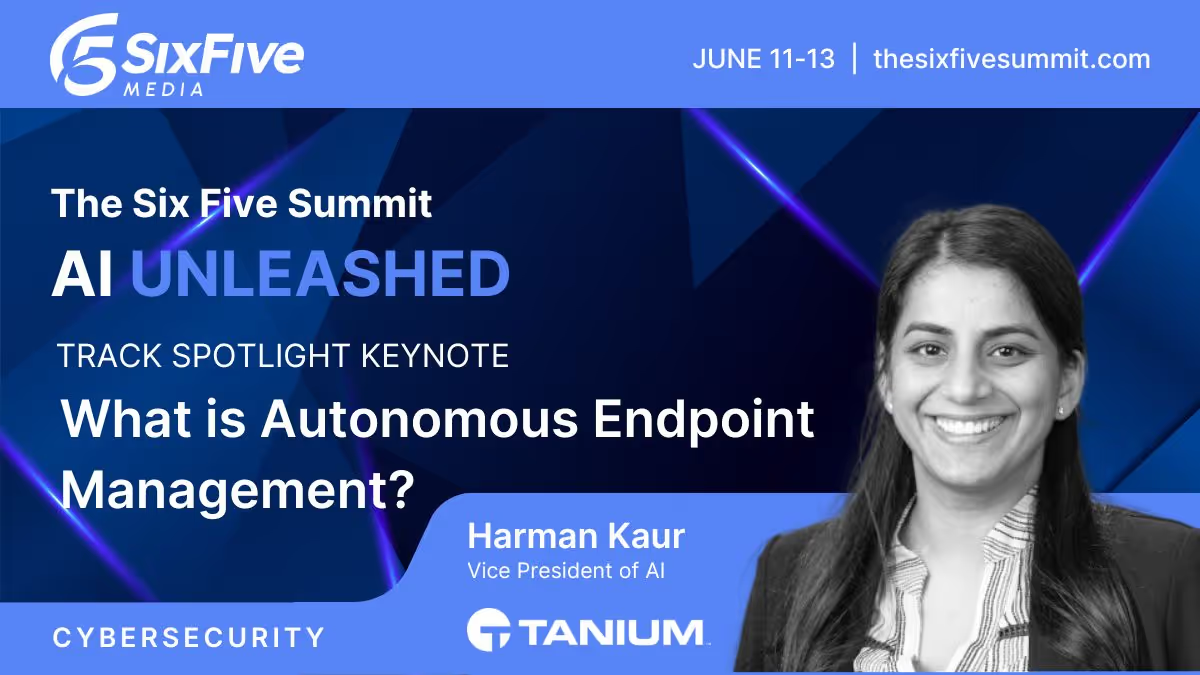AI Agents and Hybrid AI: Preserving Mainframe Knowledge and the Impact of BMC’s AMI Assistant
David Jeffries and Priya Doty from BMC Software discuss preserving mainframe knowledge and driving transformation with AI Agents and Hybrid AI on the latest Six Five On The Road.
AI is no longer a futuristic concept – it's transforming the present, including the world of mainframes. On this episode of the Six Five On The Road, host Daniel Newman is joined by BMC Software’s David Jeffries, VP, Research and Development, and Priya Doty, VP, Solutions Marketing. They examine how AI-powered knowledge transfer, specialized language models (SLMs), and automation are reshaping mainframe operations. Is your organization embracing these advancements?
Key takeaways include:
- Knowledge Retention: Despite the loss of experienced talent, institutional knowledge remains within organizations. BMC is leveraging generative AI to capture and apply this knowledge, aiding new experts in their roles.
- AI and Mainframes: The integration of AI, particularly through specialized language models (SLMs), is enhancing mainframe development and maintenance. These models are tailored for specific tasks, such as code development and problem diagnosis.
- Market Challenges and Opportunities: The need for practical AI applications and the challenge of navigating numerous language models. BMC's "bring your own LLM" capability offers flexibility in model selection.
- Impact on Business: AI-driven automation in mainframe environments is expected to boost productivity and innovation, potentially improving business outcomes significantly.
Learn more at BMC Software. Watch the video above, and be sure to subscribe to our YouTube channel, so you never miss an episode.
Daniel Newman:
The Six Five is on the road today. We are in Washington D.C. and I am excited for some conversations that we are having today about. Well, we're going to talk a little about AI and we're going to talk about a number of different things, but we are also going to be talking about knowledge, the transfer of knowledge, education, the continuation of agents and so much more. I'm very pleased today to be joined by Priya, David. Welcome both to the show. It's really nice to be here with you both. How are we?
David Jeffries:
Thank you, Daniel. All good.
Priya Doty:
Thank you, Daniel. Doing well.
Daniel Newman:
So the world is changing really, really quickly. And BMC, you are in this really exciting inflection of the business. Right. You're going from an era where, by the way, a very large business, diversified business, business that kind of has two major parts and one of the biggest parts has long been around mainframe and software. And we of course are seeing that business change really, really quickly. I kind of wanted to start off, you know, and David, I'll start this with you talking a little bit about what's going on with the evolution with knowledge and talent. We know that people that kind of came up in this business are evolving, they're changing. We see AI as a possibility for a new way for knowledge and learning to be accepted. I know you're leading this charge at BMC. Talk a little bit about kind of how the company's thinking about this transformation of knowledge and the modernization so that we can continue to benefit in the era of hybrid AI along with the historic mainframe.
David Jeffries:
Absolutely. So I think we can all recognize that we're going through a transition, transition of skills through the organizations, et cetera. And knowledge is absolutely critical to what we do on the mainframe. But one thing I'd say some examples, by the way, that we've heard from customers who've lost over 3,000 years of skill in a year or so. And that is a massive challenge to many organizations. But what we're not losing, we're not losing knowledge. Knowledge is still with us. It's still in our organizations. Whether it's in teams calls or design documents or whatever it may be, we have knowledge. We're losing the skill that's able to take that knowledge and apply it to the business. So one thing that BMC is looking at doing is it's is how we can take generative AI and we can capture that knowledge, capture that information that's in the business, it's still within the business and apply it and inject it to the new subject matter experts at the right time in what they're trying to do, as they're trying to change the business, having that real expert on their shoulder. And it's being phenomenally successful so far.
Daniel Newman:
Priya, in your role, you obviously have this need to make sure the market better understands how this knowledge transfer is taking place and how this technology is acting as an enabler. As you're sort of thinking about how you can position BMC, the work it's doing right now to bring the knowledge to the market through AI. What are some of the challenges that you're seeing and some of the biggest opportunities that are sort of coming to light, as David suggested, it's going really well. How are you sort of balancing? Because there is a challenge of skill. The opportunity to me is kind of the beating. Don't know, it's the awareness, people seeing that this capability is there.
Priya Doty:
Yeah, it's a really good question, Daniel, because I think so. I cover solutions marketing and so I talk to a lot of customers, also understand what's happening in the market. And I think that in many ways with Genai, there's almost like a need to imagine what the use cases can be and when customers can start to understand like discrete examples of how they can leverage Genai. Oh, I could open up a piece of COBOL code and I could actually get an explanation of what that code means. That could be useful for me. Then the light bulbs start to go off in their head about, okay, where can I apply this to my daily life? So there's a theory behind it, but there's also the practice of how I can see the value in my daily life. And when people can find those use cases, that's when they start to go and say, hey, this is something I need to go touch, check out or try out.
Daniel Newman:
But there's also this kind of overwhelming feeling I imagine you're getting when you're looking AT Solutions partners, 40/000 LLMs to choose from. Kind of how are you thinking about making sure that you're getting to them but not further overwhelming?
Priya Doty:
Further overwhelming. Yeah, it's true. I mean, a lot of the discussions I think, Dave, you've had with customers, they actually start with like, what is the foundation of AI? Right. And how do you get to that foundation? How do you set it up for your organization? So some ideas of what you.
David Jeffries:
You mentioned 42, 43 LLMs, which will be different tomorrow. Right. And putting it in context, about three years ago there were about 120, right? And these are all open source, commercial, etc. I think one of the things that we're finding is that there is no one LLM that solves everything. There's no one LLM to rule them all. There are and we start to see this emerge. LLMs that are very tuned to specific areas, maybe LLMs that are tuned to the code development journey, LLMs that are tuned to problem diagnosis. And that's where we're starting to get into the concept of SLMs. So SLMs being industries calling them small language models, I kind of like to call them specialized language models because I'll give you an analogy, you don't necessarily go to your dentist to ask how to fix your car. You go to a specific kind of center of excellence. Center of excellence. LLM that you can kind of, you know, it's trained with COBOL or you know, it's trained with JCL or you know, it's trained with root cause analysis. That's what we're starting to see really emerge now. Is that really that era of SLMs? And that's incredibly exciting for us.
Daniel Newman:
Yeah, I like that you called out SLMs. I think there's going to be some ongoing debate as to how we actually refer to them. But I think what we are finding out is that the real scaling laws of the enterprise is going to happen when large models are made smaller, more purpose built, more efficient for the deployment. Just as a quick follow on that, how do you make sure though? What's the BMC role in making sure that right model is selected?
David Jeffries:
So we have a capability within our technology that we call bring your own LLM, which is very much around. We have an LLM Library, LLMs that we've tried for various kind of use cases. And it's all, as Priya said, it's all use case based. If you're going down a developer route, There are certain LLMs that are good for explaining code. There are other LLMs that are very good for augmenting code and others that are even better for testing code. So we'll look at a bunch of those and we'll look at the efficacy, the accuracy of the answers that kind of come back and we'll give recommendations. But at the end of the day it's down to the customer. What does the customer want to use, what are they authorized to use, what do they have governance around? So we like that flexibility that we give to customers.
Daniel Newman:
Priya, how do you guys envision the impact that AI driven automation is going to have in mainframe development? In the era of sort of hybrid AI because you know, mainframe is a part, but it's mainframe, it's public cloud, private cloud, you know, it's, it's edge, it's everything. Are you guys seeing AI driven automation impacting that?
Priya Doty:
Well, I think the way to think about it is, you know, I think Gartner has a stat that says that 20 something between like let's say 15 to 30% of core systems sit in mainframes in multiple industries. So the productivity of being able to empower a mainframe workforce to be able to update applications, to create new applications, as the case may be, that's going to help companies to actually go out and innovate, to be able to maintain the software better, to manage those systems better, to keep them up and running. So I think at the end of the day, the way to think about it is what are those core systems and what are they driving? And to the extent that that productivity improvement or that uptime improvement can help the rest of the business, you know, it could be a 15% improvement at 20% improvement. We don't know yet, right? We're still learning, but that's going to have an overall impact on the bottom line and the top line of any of these companies.
Daniel Newman:
Priya and David, I want to thank you both so much. It sounds very promising and as I see it, the ability for you to leverage the technology to deliver this knowledge that is going to slowly fade if we do not find a way. This is such a great utilization, such a great use case for generative AI to make sure that we maintain that knowledge, bring that knowledge forward and continue to enable companies to find that optimization and efficiency growth. So thank you both so much for joining us and we'll talk soon.
David Jeffries:
Thank you.
Priya Doty:
Thanks Daniel.
Daniel Newman:
And thank you all so much for being part of the six five community. Hit that subscribe button. Join us for all of our content. We look forward to seeing you all soon. Bye bye for now.
MORE VIDEOS
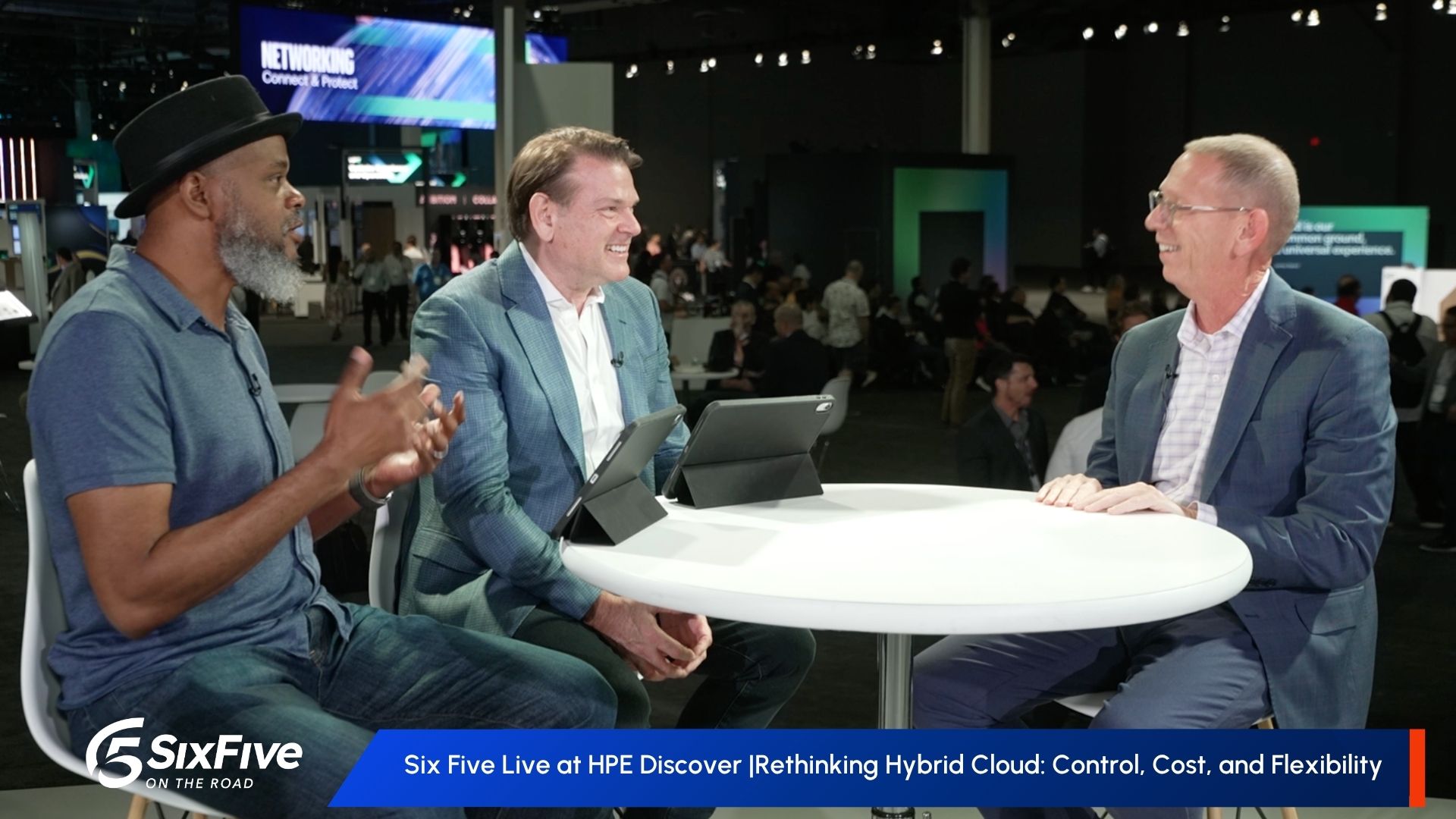
Six Five Live at HPE Discover | Rethinking Hybrid Cloud: Control, Cost, and Flexibility
David Nicholson, Keith Townsend, and Matt Kimball join the Six Five to discuss HPE's advancements in hybrid cloud at HPE Discover 2025, focusing on control, cost, and flexibility. A deep dive into how these initiatives are reshaping enterprise cloud strategies.
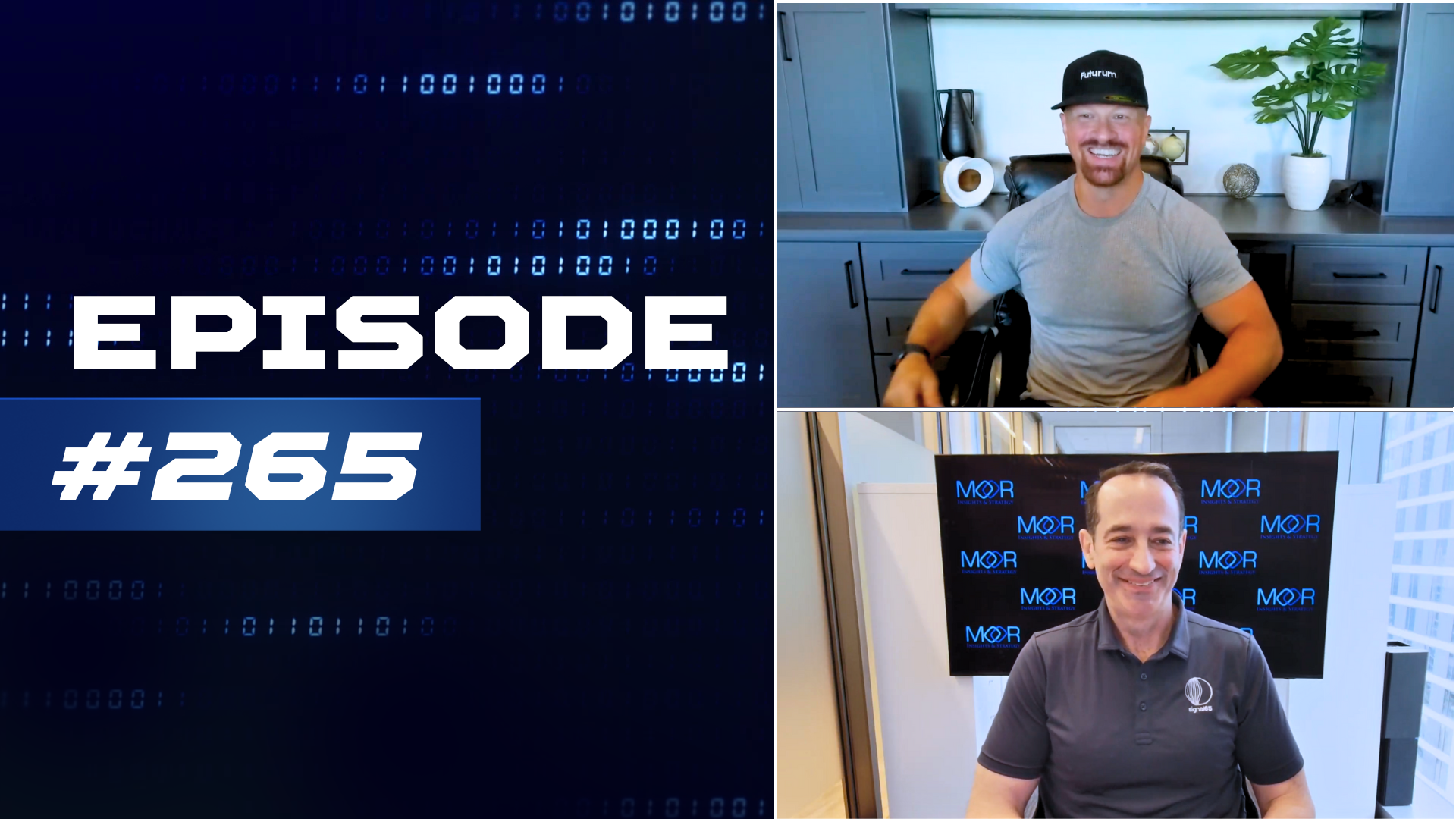
The Six Five Pod | EP 265: Will AI Take Your Job? Plus Intel’s Quiet Transformation & AMD’s Opportunity in the AI Chip Race
On episode 265 of The Six Five Pod, Patrick Moorhead and Daniel Newman, hosts of the Six Five podcast, dive into the latest tech news and trends. They discuss HPE Discover highlights, OpenAI's legal battles with Microsoft, and Amazon's AI-driven workforce changes. The hosts debate the ethics of AI companies using web data for training and analyze Intel's strategic shifts under new leadership. They also explore Micron's strong earnings and Nvidia's continued dominance in the AI chip market. Throughout, Patrick and Daniel offer insightful commentary on the rapidly evolving tech landscape, punctuated with their signature banter and industry expertise.
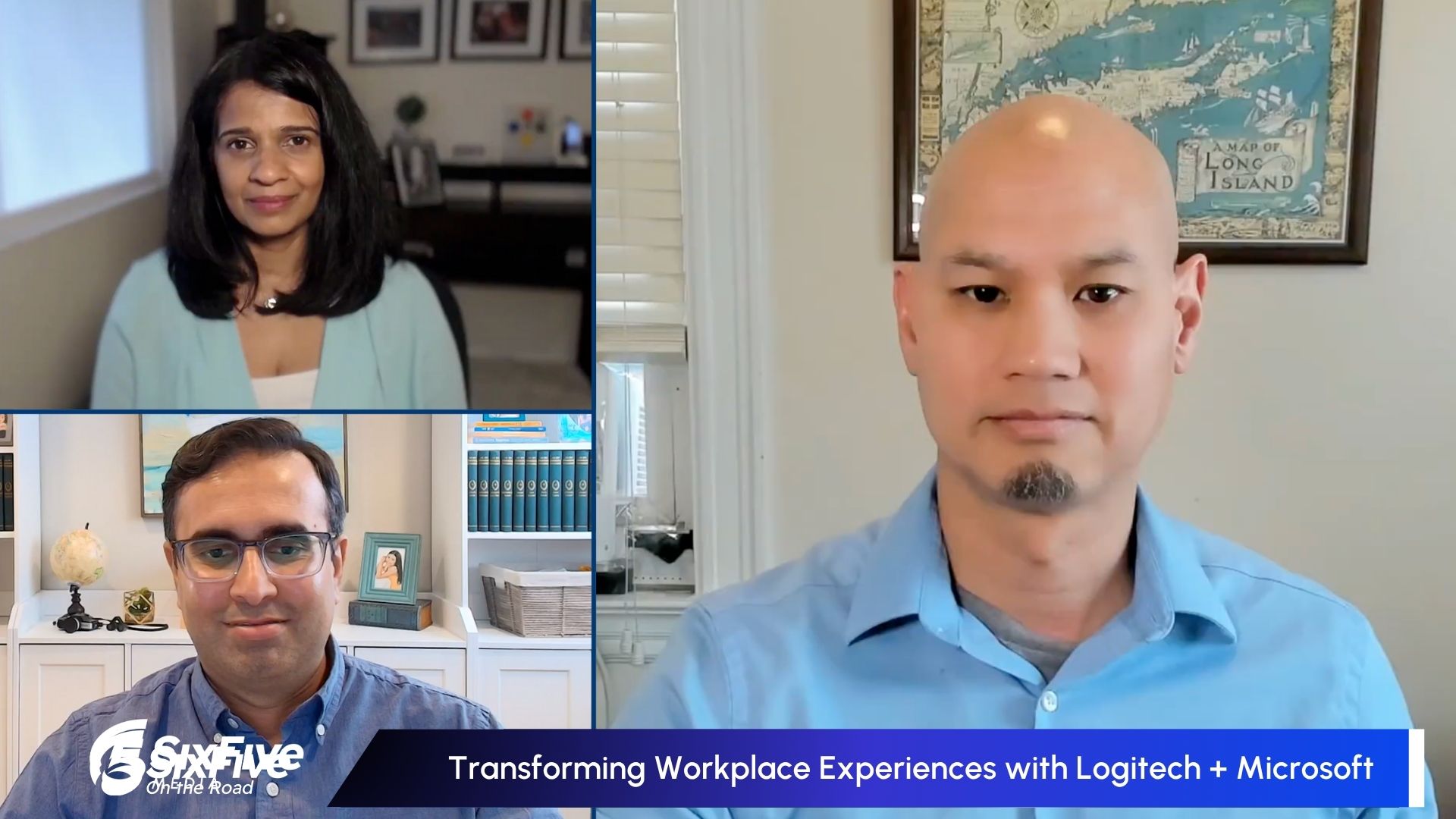
Transforming Workplace Experiences with Logitech + Microsoft - Six Five Media Webcast
In this episode of The Six Five Media webcast, Logitech’s Rishi Kumar and Microsoft’s Sandhya Rao discuss the new meeting technologies announced at their respective events, focusing on Microsoft Copilot, efficiency gains, and BYOD.
Other Categories
CYBERSECURITY
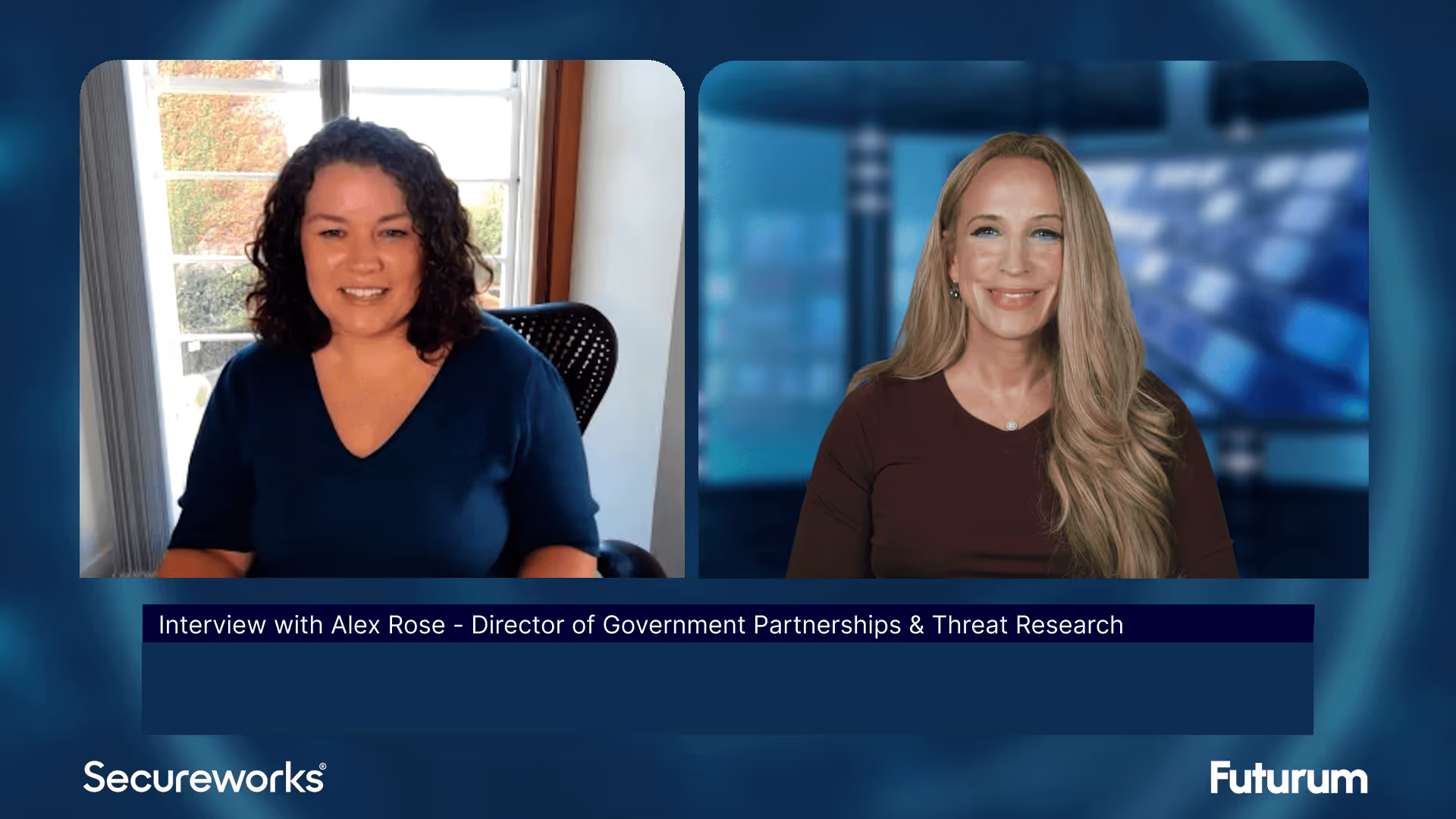
Threat Intelligence: Insights on Cybersecurity from Secureworks
Alex Rose from Secureworks joins Shira Rubinoff on the Cybersphere to share his insights on the critical role of threat intelligence in modern cybersecurity efforts, underscoring the importance of proactive, intelligence-driven defense mechanisms.
quantum
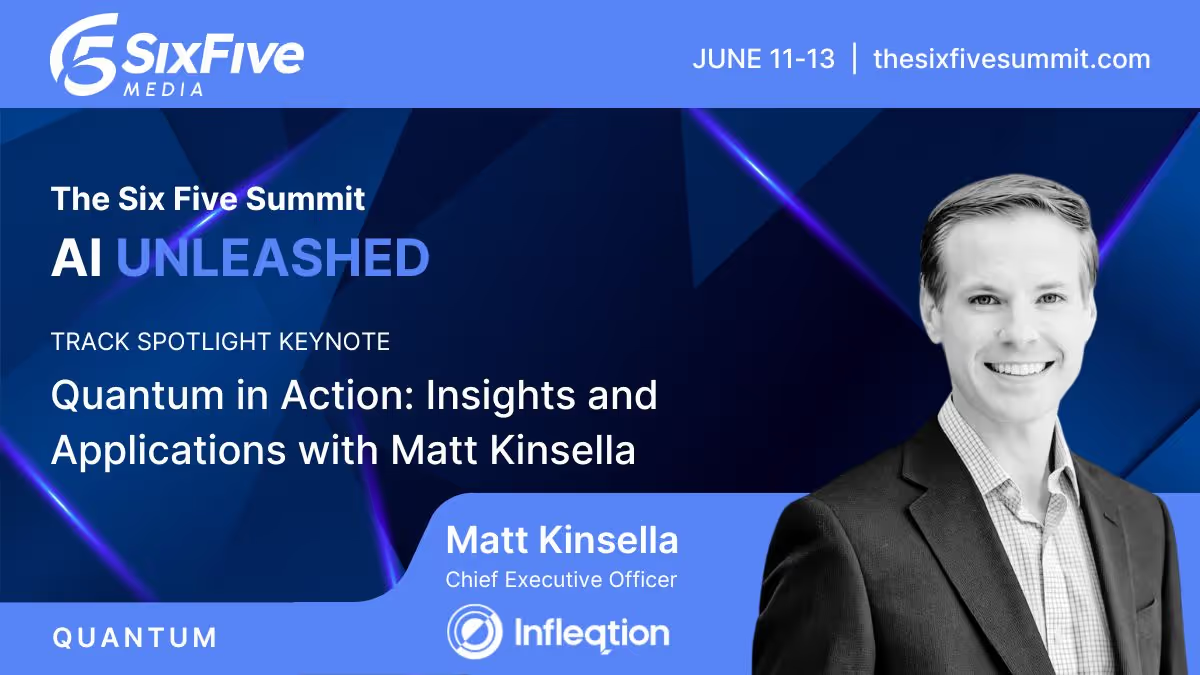
Quantum in Action: Insights and Applications with Matt Kinsella
Quantum is no longer a technology of the future; the quantum opportunity is here now. During this keynote conversation, Infleqtion CEO, Matt Kinsella will explore the latest quantum developments and how organizations can best leverage quantum to their advantage.
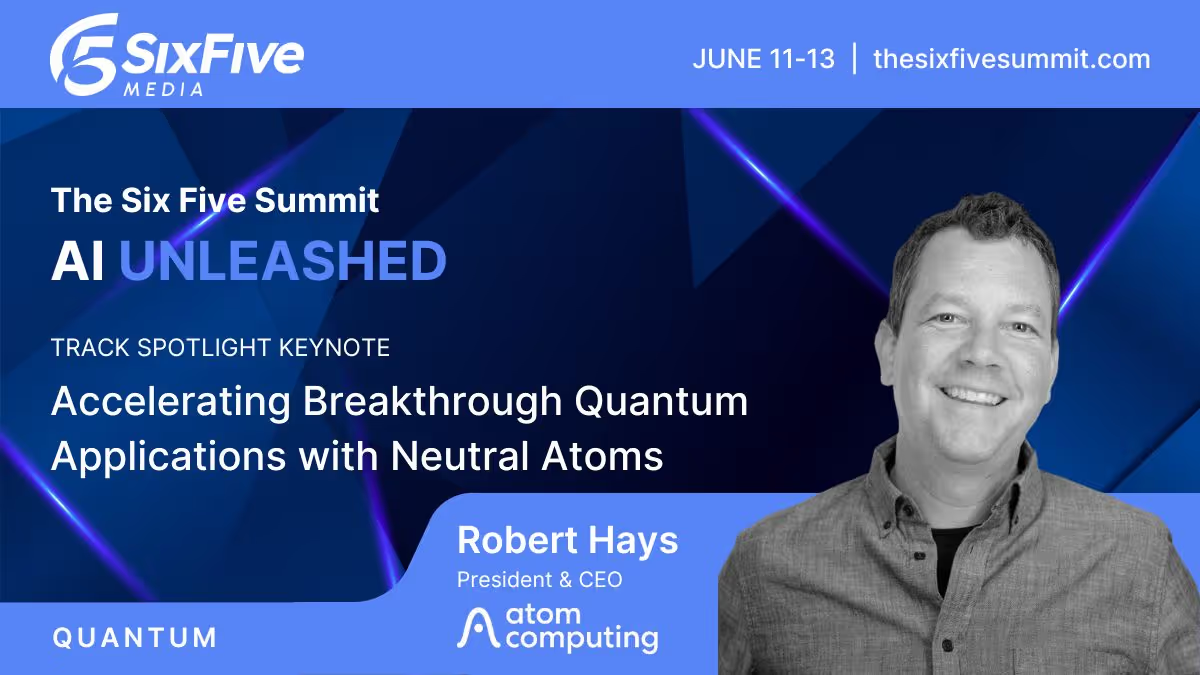
Accelerating Breakthrough Quantum Applications with Neutral Atoms
Our planet needs major breakthroughs for a more sustainable future and quantum computing promises to provide a path to new solutions in a variety of industry segments. This talk will explore what it takes for quantum computers to be able to solve these significant computational challenges, and will show that the timeline to addressing valuable applications may be sooner than previously thought.




